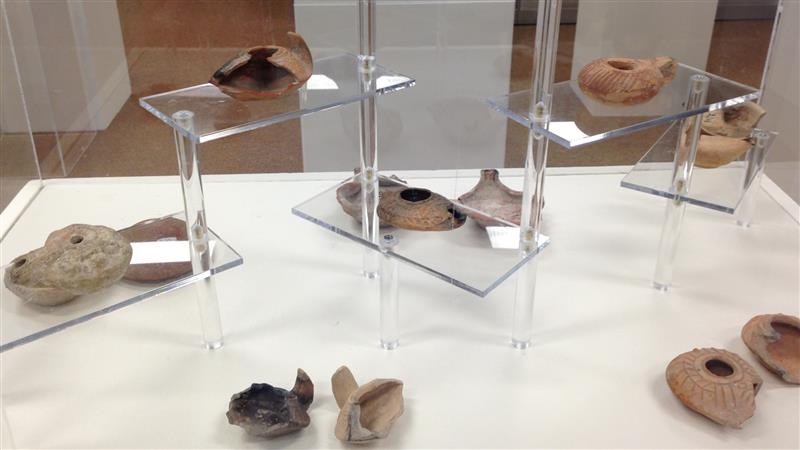The Prison Pandemic Papers, a project led by Dr. Kevin Walby, launched online this week, making available previously unpublished government records obtained using access to information and freedom of information requests submitted to governments across Canada.
As the quantity and quality of records obtained from some governments and the scarcity of documents obtained from others reveal, some jurisdictions take the public’s right to know more seriously than others.
Dr. Kevin Walby
These records provide insights into the COVID-19 response of federal, provincial, and territorial prison authorities, along with the impact the pandemic has had on imprisoned people and those working in congregate settings of human caging. The release of these documents by the Prison Pandemic Partnership follows the publication of a piece by the initiative in Policy Options published on Wednesday charted the spike in COVID-19 cases behind bars during the omicron wave over the past three months during which infections outnumbered those in Canadian jails, prisons, and penitentiaries throughout the first 21 months of the pandemic.
Dr. Kevin Walby, Associate Professor of Criminal Justice and Director of the Centre for Access to Information and Justice from the University of Winnipeg, led the collection of the Prison Pandemic Papers.
Reflecting on the challenges obtaining the government records sought through access to information and freedom of information requests, Walby notes: “The previously unpublished records the Prison Pandemic Partnership released today provide a window into government transparency and secrecy in pandemic times. As the quantity and quality of records obtained from some governments and the scarcity of documents obtained from others reveal, some jurisdictions take the public’s right to know more seriously than others. It’s troubling to see the secrecy and transparency deserts that exist, particularly in jurisdictions like Quebec and Alberta, that leave much unknown about the responses to and impacts of COVID-19 on their jails.”
Dr. Justin Piché, Associate Professor of Criminology at the University of Ottawa and member of Criminalization and Punishment Education Project, triaged and curated the Prison Pandemic Papers along with Sarah Speight, PhD Candidate in Geography at the University of Ottawa.
Piché describes the types of records that the Prison Pandemic Partnership managed to obtain: “Congregate settings have been hit hard by COVID-19 throughout the pandemic which is soon to enter its third year. This is evident in the Prison Pandemic Papers we’ve obtained documenting disease prevention, management and treatment protocols, shifts in prisoner and staff counts, cancelled and modified visits and programming, the use of segregation and lockdowns including in the name of medical quarantines and isolation, use of force, prisoner resistance in the form of hunger strikes, protests and refusals to stand for count, prisoner and staff grievances, health and labour inspections, vaccination, and more.”
Speight adds: “As the documents reveal, prison policies and practices enacted during the pandemic have made already austere conditions of confinement even more austere. As the prison pandemic continues, it’s critical that the courts and governments do what they can to reduce imprisonment to decrease COVID-19 transmission and exposure to torturous conditions that undermine public health and community safety.”
Abby Deshman, Director of the Criminal Justice Program for the Canadian Civil Liberties Association, concludes by noting: “The Prison Pandemic Papers were created as a resource for imprisoned people and their loved ones, community organizers and advocates, researchers, journalists, lawyers, policymakers, and members of the public to learn about how governments are responding to COVID-19. The release of these records today is also an invitation for others to file their own information requests that can contribute to this collective endeavour of knowledge and action, and work together towards greater transparency, accountability and change.”
About the Prison Pandemic Partnership
The Centre for Access to Justice and Information (CAIJ) promotes public interest research using freedom of information (FOI) and access to information (ATI) law. The CAIJ fosters collaborations between social science and humanities scholars, as well as access advocates, investigative journalists, and legal professionals from across Canada and beyond.
The Criminalization and Punishment Education Project (CPEP) engages in research and community organizing to reduce the use and harms of imprisonment in the short-term, while working towards abolitionist futures. The group advocates expanded access to community supports and transformative justice to prevent and respond to social harm.
The Canadian Civil Liberties Association (CCLA) is an independent, non-profit organization with supporters from across the country. Founded in 1964, the CCLA is a national human rights organization committed to defending the rights, dignity, safety, and freedoms of all people in Canada.
These three organizations have come together to form the Prison Pandemic Partnership, which examines the impact of COVID-19 on jails, prisons and penitentiaries across the country. The partnership is funded by the Social Sciences and Humanities Research Council of Canada (Partnership Engage Grant 1008-2020-0238).




